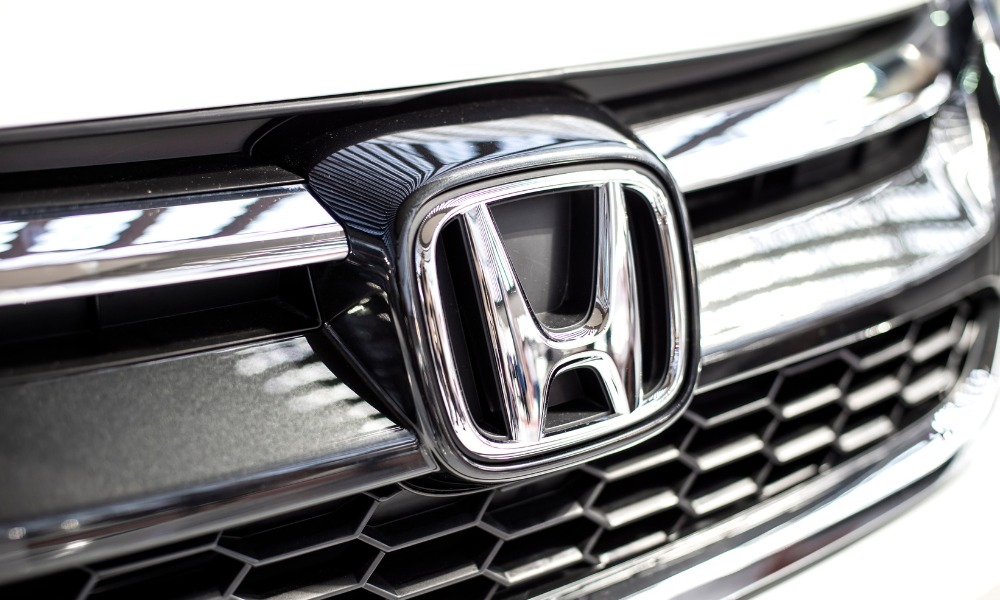Honda forecasts 59% profit plunge as it braces for tariff fallout and market uncertainty

Honda Motor has delayed its planned $15bn electric vehicle (EV) battery and assembly facility in Ontario by approximately two years, citing slowing EV demand and tariff impacts, as reported by Reuters.
The company forecasts a 59 percent fall in operating income for the fiscal year ending March 2026, projecting US$3.38bn compared to ¥1.21tn the previous year.
The Japanese automaker expects a ¥650bn hit to its fiscal 2026 operating profit from tariffs in multiple countries, with ¥300bn directly linked to imports of around 550,000 finished cars.
Honda stated in presentation materials that it plans to offset about ¥200bn through mitigation strategies.
As cited by CP24, the company warned of a potential 70 percent drop in global net profit if US President Donald Trump’s tariffs remain in place.
The US administration imposed a 25 percent tariff on auto imports last month, adding to existing levies on imported steel and aluminium.
Ontario Premier Doug Ford said Honda “promised” his government it would continue with the planned expansion despite the delay.
According to CP24, Ford stated, “They’re going to keep that facility moving forward,” and added that his government would hold automakers “accountable” for the $2.5bn in provincial support.
The federal government has also committed $2.5bn through tax credits for the same project.
Ontario’s Finance Minister Peter Bethlenfalvy described the US tariffs as a “challenge unlike anything” the province has faced and confirmed the issue would be central in Thursday’s budget, as reported by CP24.
He said, “Our closest ally, the United States, has imposed tariffs on us, creating economic uncertainty.”
Industry Minister Mélanie Joly assumed her new role on the same day Honda announced the delay, as noted by The Globe and Mail.
The publication suggested the move underscores the scale of disruption Canada’s EV sector may face due to Trump’s trade policies.
Honda’s decision appears more significant than recent setbacks from GM or Northvolt because of the size and scope of its investment.
Honda’s EV project, announced in April 2024, aimed to expand its Alliston, Ontario operations and create 1,000 new jobs in addition to the 2,400 existing positions.
Honda stated that the decision to postpone “has no impact” on current jobs or production at the plant and that the company will continue to reassess timing “as market conditions change,” according to CP24.
Despite the delay, Honda reiterated its long-term commitment to Canada.
“We have determined that the EV value chain initiative in Canada is essential to our electrified future,” said Honda spokesperson Ken Chiu, as quoted by The Globe and Mail.
“There are no plans to cancel or relocate the project at this time.”
Honda accepted $5bn in subsidies for the project—significantly less than what Volkswagen and Stellantis requested for similar investments—and planned a broad supply chain initiative involving battery manufacturing, vehicle assembly, and materials partnerships with Japan’s Asahi Kasei Corp. and South Korea’s POSCO Future M Co. Ltd.
The Globe and Mail also noted that Honda’s corporate culture, like that of Toyota, is regarded within the industry as conservative and place-based.
This has provided some reassurance that the delay is not indicative of withdrawal from Canada, despite increasing uncertainty in the North American EV market.
On the topic of strategic partnerships, as reported by Reuters, Honda chief executive Toshihiro Mibe said there had been no further developments since merger talks with Nissan ended in February, but the two companies maintain a technology cooperation agreement.
“Although the automotive industry is in a very difficult situation, we will definitely look for new directions of growth through strategic partnerships,” Mibe stated at a news conference.
The Globe and Mail concluded that the delay signals the strength of economic headwinds, particularly when “the least kneejerk of companies” feels forced to alter course.
It suggested that the federal and provincial governments may need to expedite raw material mining and revisit subsidy strategies to maintain investment momentum and keep Canada’s EV ambitions viable.



